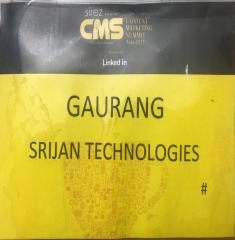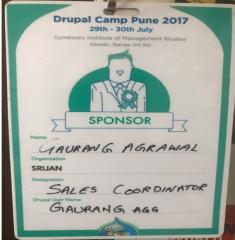Submitted by GAURANGAGG on Sat, 05/20/2017 - 10:42
1. Never rely on your memory when it comes to finance, Never.
Avoid equities when they become historically expensive. Never stay invested in an expensive market.
NIFTY PE - < 14, 14-16,22-24 = 3 year returns were 152%,112%,-14% ( according to some research ).
Always look for PE trends ( even if they aren’t the absolute truth ). The lower the P/E better are the prospectives of earning money from the bull market ( provided that the income of the company doesn’t diminishes ).
Bull market v/s Bear market
Bull market produces large profits for investors which gives them a high. This euphoric feeling is similar to someone who is high on drugs. It feels great to ride on the wave of being high and that’s when the rationality is lost and great losses are made. Walter Bagehot, the famous British essayist once said, “All people are most credulous ( when people believes in everything ) when they are most happy.”
When market falls, every stock falls too. There will be cheap things in the bull market but they are possible traps because eventually they might become cheaper after another market decline.
“What we learn from history, is that don’t learn from history” - the insane occurrence and which holds absolute truth in all aspects of lives ( in military campaigns - forgiving enemies who would come back with double might and annihilate you completely ).
2. Never ever speculate in IPOs.
IPOs are meant to be valued first. Probably they are overpriced, probably they are not. You just can never be too sure about that.
Rationally speaking, everyone wants good returns from their disinvestments so why would anyone offer you shares at cheaper price. It is matter of chance that due to huge demand the prices of shares might have soared up but they can come down 2-3 months down the line.
Since people have positive sentiments in bull markets, most of the IPOs are released in bull market. For instance in year 2017, the PE is above 23 and we have seen IPOs like Avenue Supermarkets, HUDCO which have received extra ordinary interest.
IPOs are market really well by promoters and they create positive vibes and possibly artificial demand around the IPO. They are paid to do it. One has to resist these temptations as supply of greater fools is not infinite. There are plenty of IPO speculators / so called traders who have stuck to massive amount of stocks only to see their costs declining every day.
Financiers who invites people to invest in IPO rarely invests in these IPOs and they earn much more returns from the interest incomes.
3. Avoiding leverage at all levels.
You really need to be skilled / highly experienced and successful investor to leverage - so never borrow money from outside nor invest in over leveraged companies. Leverage hurts.
When you leverage, you are hopeful that you will earn more than the lending rate ( could be between 6%-15% p.a. ) and as per the performance of BSE 500 Index, 90% of the stocks have declined more than 50%. Betting on these stocks will wipe out your majority of capital and worst case scenario, you will lose the collateral which you gave to financier and their friendliness will turn soar as you start tasting loses.
Leverage can be associated with the word “confidence” and when you become over-confidence blindly, you suffer. So avoid leverage / margins at all levels or costs. Missing opportunities is better than losing entire fortune.
4. Learning from other’s experiences:
There are two types of experiences which are direct and vicarious. We overmine the former and undermine the latter (thinking others are not well informed / that cannot happen to me ).
Consciously learn from the experience of others and also the errors of judgement made by others. Study about mass errors of judgements.
Read the books : (1) Extraordinary Popular Delusions and the Madness of Crowds by Charles Mackay; (2) The Great Crash, 1929 by John Kenneth Galbraith; (3) A Short History of Financial Euphoria by John Kenneth Galbraith.
History shows how little things change and also how human nature stays same and is still prone to errors of judgement.
Charlie Munger once said, “You don’t have to pee on an electric fence to learn not to do it!”
The content above was majorly referred from the PDF shared by Sanjay Bakshi who was a Visiting Professor at Management Development Institute, Gurgaon.
His Website URL is www.sanjaybakshi.net
I am a big fan of him and I follow him religiously!









Add new comment